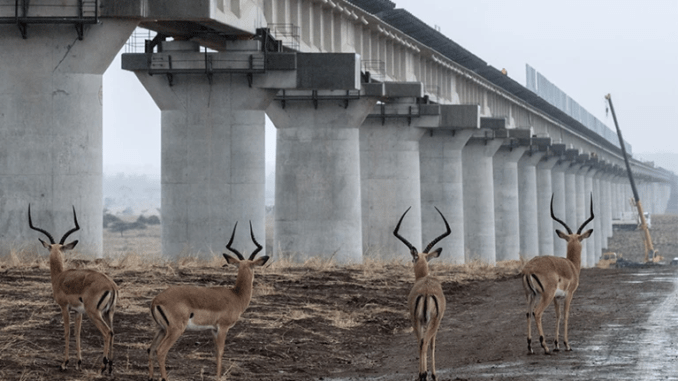
China’s BRI is boosting science, says journal Nature.
THE WEST MUST ENGAGE, NOT WITHDRAW
The following is an excerpt from the editorial on 24 October 2023 in the world’s leading science journal, Nature.
In science, the BRI is coming into its own.
In 2019, Nature travelled to a large construction site where a new university was being built. The Pak-Austria Fachhochschule, a collaboration between Austria, China and Pakistan, opened in 2020. Its first students will graduate next year, and it has already opened collaborative research centres in artificial intelligence, critical minerals and railway engineering.
In Beijing, Nature talked to some of the 200 international doctoral students selected annually and funded by the Chinese Academy of Sciences (CAS) and the UNESCO World Academy of Sciences, based in Trieste, Italy. The scheme now supports 300 new PhD scholars a year.
Last month, in a collaboration between the Chinese Academy of Sciences, the National Museums of Kenya and the Sino–Africa Joint Research Center near Nairobi, researchers published the first in a 31-volume study called Flora of Kenya, which will catalogue nearly 7,000 plant species.
And this month saw the announcement that the space agencies of Pakistan and Azerbaijan will join other international partners in China’s lunar research-station project, which aims to build a permanent base on the Moon in the 2030s.
The Alliance of International Science Organizations is a network of science institutions that advises on science policy for the BRI. Based at the Chinese Academy of Sciences, it has global representation. It organizes PhD scholarships in China, as well as funding calls for projects between its 67 institutional members, spread across 48 countries — up from 37 members in 2019. The UN’s science and education agency UNESCO is involved, as are a small number of European science academies. More academies from Western Europe should consider joining. US academies should also look at participating; currently none are signed up.
China wants to share its experiences of how to escape poverty, having made great strides towards that goal in a generation. But to tackle global economic, environmental and political issues, policy-making and governance need to be research-based and multilateral…. Stopping person-to-person contact and ending longstanding institutional research relationships is not the way to address climate change, prevent wars, or avoid or tackle another global financial crisis.
Source: Nature, 24 October 2023. https://www.nature.com/articles/d41586-023-03299-6